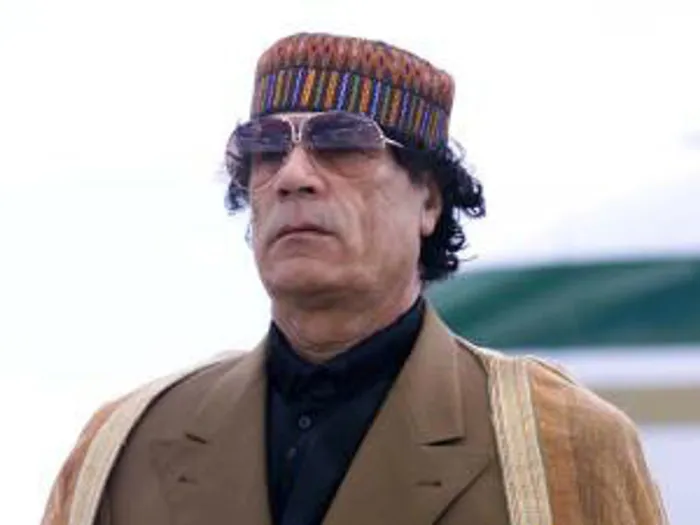
Muammar Gaddafi Muammar Gaddafi
Peter Fabricius
One of the side-shows which played out around the summit of the Forum for China-Africa Co-operation (Focac) in Johannesburg last week was about who would represent Libya there.
The country, which has been in turmoil since Muammar Gaddafi was toppled in a civil war in 2011, now has two rival governments. One is based in the traditional capital Tripoli in the east and the other in the port city of Tobruk in the far west. The Tripoli government is more Islamist and the Tobruk more secular. Tobruk also has more legitimacy because it is based on countrywide elections that were generally deemed free and fair.
And so Tobruk is recognised by Africa and the rest of the international community as the legitimate representative of the country.
Yet the South African government can’t seem to make up its mind which to recognise. It granted a visa at the start of the year to Yousif Sherif to come to South Africa as Tobruk’s representative.
However the Libyan Embassy in Pretoria had sworn allegiance to Tripoli and so Sherif has been unable to occupy the embassy. And Pretoria has not ordered the Tripoli representatives to vacate it.
Before the AU summit in Johannesburg in June there was a diplomatic skirmish as it looked as though South Africa would not let in the president of the Tobruk government to represent Libya – even though the AU recognises Tobruk. Eventually he did come.
The same thing happened before Focac as Tobruk had received no invitation to the summit just a week or so before it was to happen. But eventually Tobruk’s foreign minister Mohamed Al-Dairi did arrive. It’s not completely clear why Pretoria is allowing this embarrassing ambivalence to continue. It seems to dislike the Tobruk government partly because it is – or at least was – allied with the maverick anti-Islamist General Khalifa Haftar who appears to be something of a warlord with his own agenda. Whether his militancy or his anti-Islamism most offends Pretoria is not clear.
Haftar now appears to have fallen out with Tobruk anyway. Pretoria also does not like the military support which Egypt and the United Arab Emirates are giving to Tobruk in the continuing civil war. And they say the Tobruk government’s legitimacy ceased on October 21 this year anyway when the mandate of its Parliament expired. South African officials also say they would prefer to wait for the outcome of the UN-brokered negotiations between Tobruk and Tripoli, which they hope will be a Government of National Accord. That would remove the ambiguity about which side should be represented in Pretoria.
Al-Dairi said after meeting President Jacob Zuma that he was optimistic that the warring factions would reach an agreement later this month to form a Government of National Accord. “The South Africans are puzzled with this bizarre situation where we have a government which is internationally recognised, to which I belong, and another government which seeks de facto authority.
“I assured President Zuma now that once a Government of National Accord is established, we look forward to resuming the excellent relationship that we used to enjoy with South Africa.”
Whether Al-Dairi is justly optimistic remains to be seen. The UN talks – now supervised by Martin Kobler, formerly the head of the UN peacekeeping force in the Democratic Republic of Congo – have now been dragging on for more than a year.
They could continue to drag and so Pretoria should end the current absurdity and recognise Tobruk in the meantime.